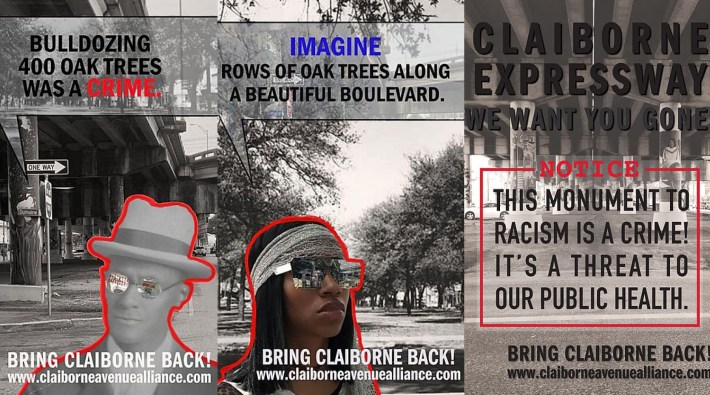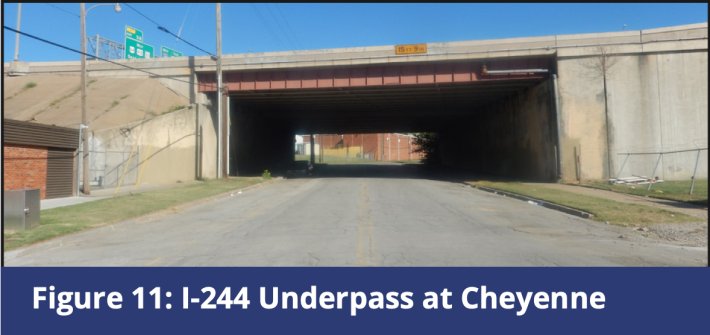A massive coalition of advocates is calling on the federal Department of Transportation to make sure a historic fund that could tear down harmful urban highways across America isn't used to expand or maintain them instead.
On Thursday, a group of 114 organizations led by nonprofit America Walks published a fiery open letter to Transportation Secretary Pete Buttigieg demanding that the U.S. DOT prioritize truly transformative applications for the $1-billion Reconnecting Communities Program, which was created under the Infrastructure Investment and Jobs Act last year.
Originally billed as a historic highway removal effort aimed at redressing decades of intergenerational harm done to Black and low-income communities during the construction of the interstate highway system, Reconnecting Communities has since morphed into a flexible fund that can also be used to make comparatively modest improvements, like pedestrian bridges, underpass parks, and greenways that allow auto-centric roads to remain intact.
"The Reconnecting Communities program has the power to remedy the injustices of our previous infrastructure investments and recalibrate our transportation priorities so that they support underserved communities, but it is too small to spend any of its funding on projects that might come at their expense," the letter states. "U.S. DOT needs to send a strong message that only projects up to the task should apply."

Perversely, some agencies are even attempting to expand highways using the program's funds — while using nominal equity improvements as political cover to justify the additional lanes.
The Oregon Department of Transportation, for instance, has reportedly identified the wildly controversial Rose Quarter Freeway project — which has already faced significant federal scrutiny for its environmental impacts on communities of color, since it may as much as double the width of Interstate 5 — as an "excellent candidate for an IIJA RCP grant," thanks to the late-stage addition of a highway cover.
Transportation officials in Oklahoma, meanwhile, would use the money to study the possibility of "widening underpasses" beneath Interstate 244 in Tulsa, leaving intact a road whose construction destroyed the historic Black Wall Street district when it was first built in the 1970s. The project would complete a “feasibility analysis” of what it would take to remove the highway, but specifies that a teardown would only in the "long term (30+ years)."

"This isn't just one instance of a single entity submitting a poor application," said Ben Crowther, advocacy manager for America Walks. "This is a pattern of behavior. These state DOTs feel that they can continue to perpetuate the damages that highways cause by using minor projects that don't actually have much of a positive impact on the communities they serve to greenwash and equity-wash [this infrastructure.]"
Crowther is particularly troubled by how the advocates who brought these problematic projects to his attention even found out them: through clandestine tip-offs, accidental emails, and even Google searches, rather than open communication between transportation officials and the public.
"These bad applications certainly aren't the only ones that are out there," he added. "If this is a program that's really meant to uplift communities along highway corridors, the application process itself needs to be much more transparent, so that many different voices can weigh in."
Because the Reconnecting Communities Program is small, Crowther says it's even more critical that DOT only select the most truly reparative projects — if only to send a message about what they'll do when more funds become available. Another $3.4 billion for potential highway teardowns is already promised under the Neighborhood Access and Equity Grant program, a similar effort created under the Inflation Reduction Act; that program, at least, restricts DOTs from adding more travel lanes to roads and requires requires participants to make plans to protect existing residents from displacement, though that's no guarantee that the funds will always be put to their highest and best use.
"I think we're at a transformative point in federal transportation policy," Crowther said. "This program, while it's really small, represents a nexus of the new principles we see coming out of the U.S. DOT. It's important to get it right."






